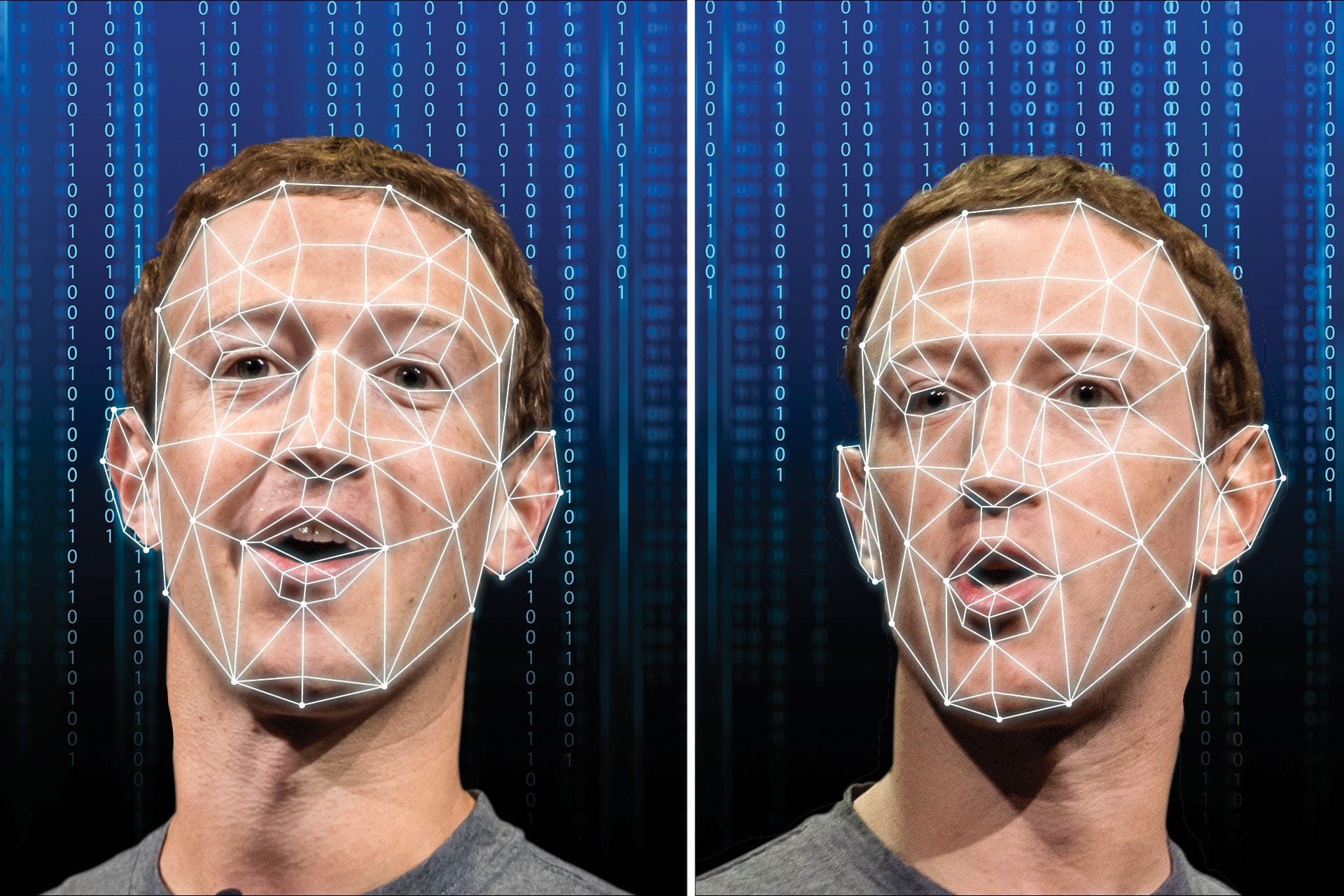Patrick Chou Week 1: The Attack on Identity With AI
In the age of social media, platforms like Instagram and Tik Tok have become platforms to share entertaining content. An emerging trend involves the cutting edge Deepfake technology. Often seen in examples where public figures are seen saying obscure statements while conversing to one another. While these videos have a comedic taste, they still bring up the question of what if this technology was used in a malicious way? This raises the question: are identities at risk of being stolen by digital clones?
Addressing this concern, the article “Determining Authenticity of Video Evidence in the Age of Artificial Intelligence and in the Wake of Deep Fake Videos,” written by Marie-Helen Maras from the College of Criminal Justice, digs into the risks and implications of this new technology. One misuse of this technology, deepfakes, has been used for superimposing faces of actors and public figures onto explicit videos (Maras, 3). This practice can irreparably damage and harm a public figure’s identity, in today’s digital age videos can spread over the internet like wildfire even with the original post being removed. This tool for identity theft paired with the difficulty of differentiating between a manipulated and authentic video creates opportunity for identity theft. So yes, identities are at risk of being stolen however these new apps need lots of past recordings of the person to be cloned. To the average person identities are hard to steal but for public personnel it is easy to steal.
However, on the brighter side, this technology has been used to help the mute, Maras highlights that this technology can be used to help those to gain a new identity and speak with others. This technology can help victims of illness gain a new identity (Maras, 3). This provides aid and give a renewed sense of identity and a means to engage with others. Providing this technology can help reconnect victims of paralysis, strokes and other illnesses.
While some dreamed of talking to our loved ones similar to holograms from Star Wars, this futuristic scene is now a reality. In another article named “Technology that lets us ‘speak’ to our dead relatives has arrived. Are we ready?”, by Charlotte Jee from MIT technology review, reviews similar technology but built for preserving memories of loved ones by digitally cloning both their voices and faces. Jee highlights this in her article cloning a loved one could prolong the grieving process (Jee, 40). Speaking to a digital clone will never be the same as talking to the real person as only a fraction of the personality of the cloned person can be projected. It is important to realize that interacting with a clone is interacting with a fraction of a person, even though advanced technology. As we dive deeper into the age of AI emotions and personality will always be the constraint separating technology to reality. Without all the personality of a person available does it really complete the true identity of a person?



Hi Patrick! Your blog provides an insightful analysis of what it means to be part of the digital age. The text addresses the age-old question of how AI would impact one's identity. When using AI to simulate individuals, it is natural to consider the possible outcomes, sometimes pessimistic, that may result from an AI-controlled identity. I admire how you address both sides of the argument presented, showing a complex understanding of the rise of AI in our current society. An incredibly concerning idea in this subject matter is how AI can be used to twist the public's perception of a prominent figure forever. Even though the public may know the information presented is fake, there is no recovery from such humiliation, especially in the digital age. A unique part of the blog is the introduction of cloning technology, allowing one to speak to their dead relatives. Through this blog, I can reflect on all the possibilities that modern technology can offer. The blog is themed toward today's world and correctly interprets our dilemmas in deciding the impact of AI. I feel the blog helps me reflect on many of the crises in today's world.
ReplyDeleteHi Patrick! I was blown away by your blog, especially considering that this was the first one any of us wrote. The topic you elected to pursue was fascinating, and your descriptive, analytical writing did it justice. The range of possibilities coming from deepfake technology that you explored was very interesting, and I feel I have a good understanding of both the positives and the negatives of the tech. I had no idea that they had developed AI to help people talk to dead relatives, and learning about that in your blog was really interesting. The Star Wars reference was relevant and tied in really nicely with your next point about communicating with AI's of dead people. I also appreciated the last sentence being a question, keeping the reader thinking after they finish the article. Great job, I really liked it!
ReplyDeleteHello Patrick! I have always thought of holograms especially in Star Wars and franchises like those. I was interested by the information regarding the clones and how they can actually help people. It was fantastic that you included information from two highly credited sources and used them effectively to inform the audience about the uses of deepfake. Personally, I believed that deepfake and the social media references have been a nuisance, but through your article, I was able to get a thorough grasp of the illnesses cured and mental illnesses improved due to this new source of technology. I liked how you included references from Tik Tok, Instagram, and Star Wars as it helps you connect with the audience in a more unique and well rounded way. Like said previously, I was able to connect with all three topics and was able to have a solid understanding of the topic at hand before deep diving into the benefits of clones and technology relating to it. Ultimately, I found this article to be outstanding! The usage of formal language and sources make this a well written piece of writing for the first article of the year. Great work!
ReplyDeleteHi Patrick! I found your blog on the impact of Deepfake technology in the age of social media to be both thought-provoking and informative. It is valid and worrisome to voice the concern about the malicious use of Deepfakes. It is true that the capacity to overlay the faces of public people onto disturbing things that can permanently harm their reputations, and the rapid spread of such material online only makes the problem worse. It is very reassuring and interesting to learn that Deepfake technology can also be used for good.
ReplyDelete